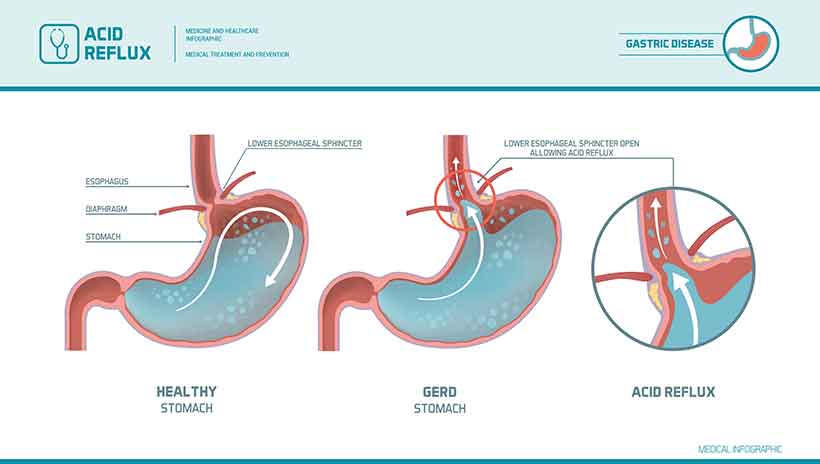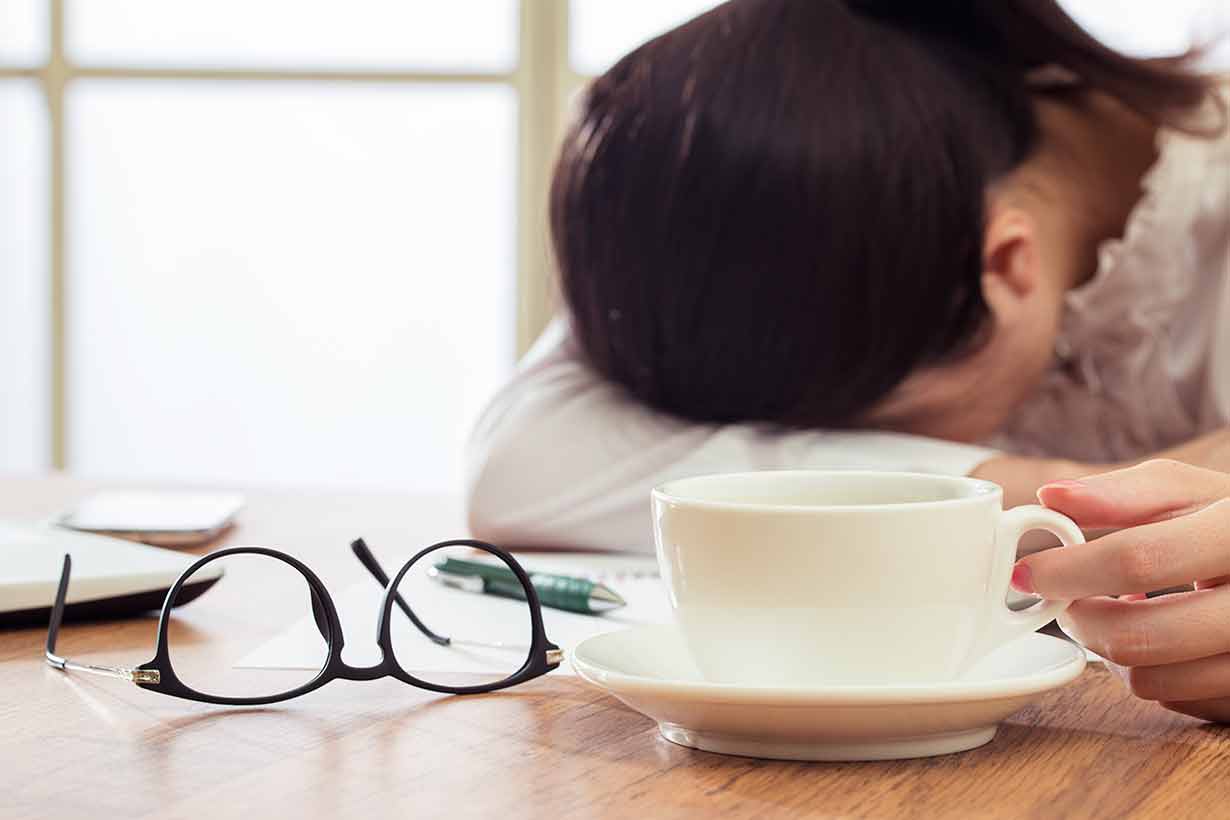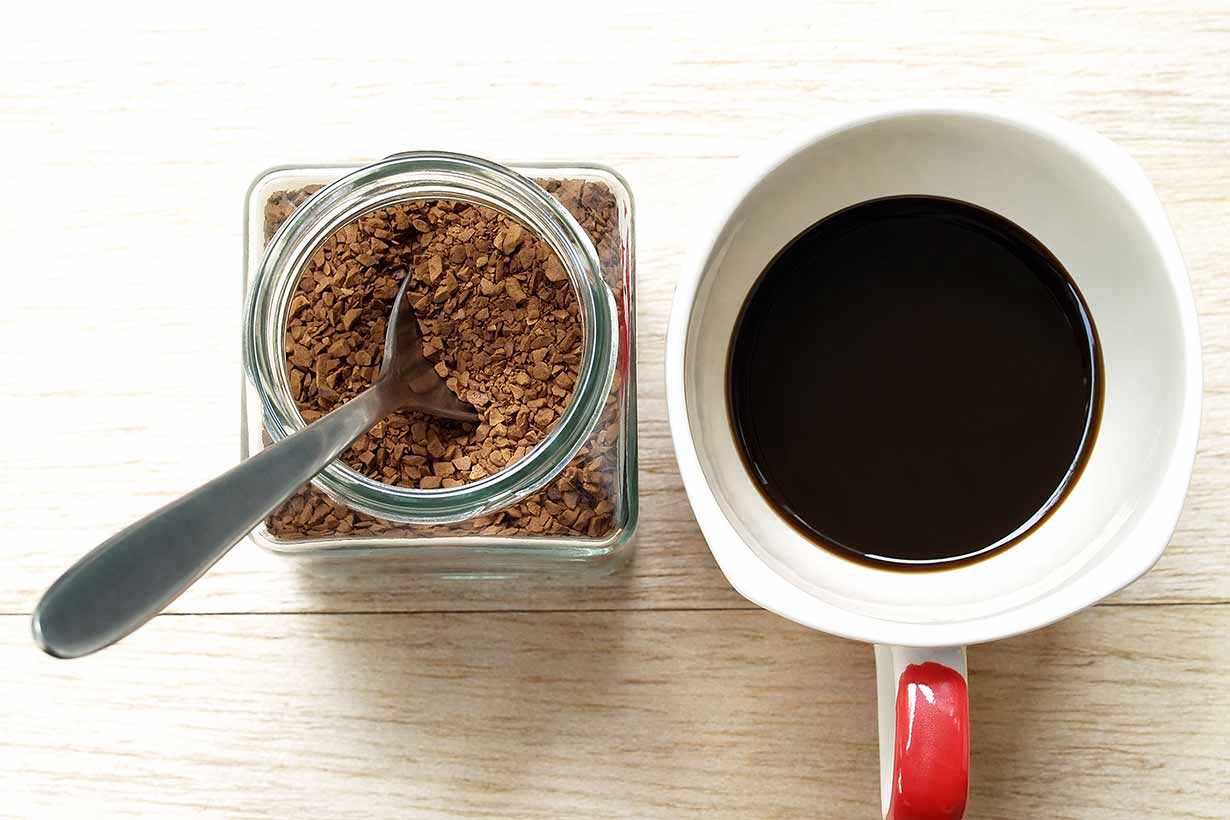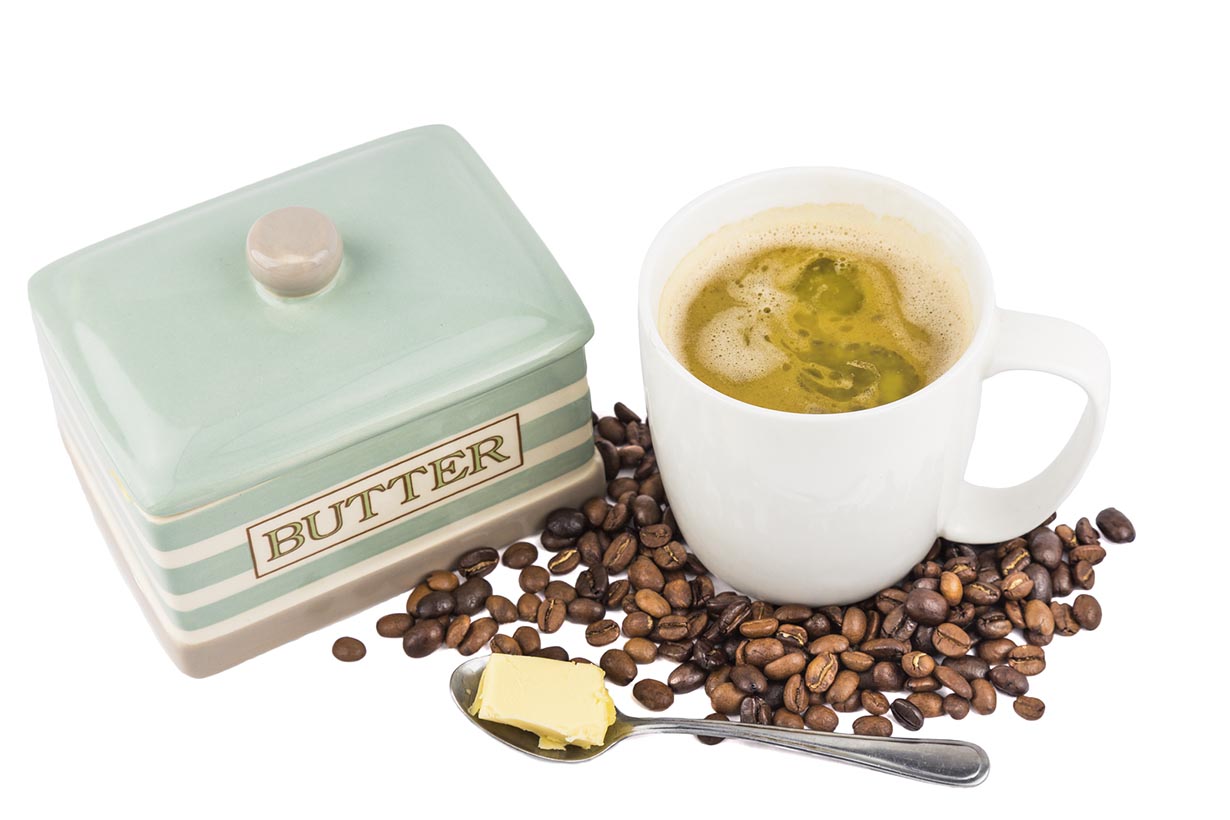Coffee is one of the most popular drinks in the world, and there is a wide range of coffee drinks.
It is important to be clear: most research on coffee is positive, and there is nothing inherently bad about the drink.
However, depending on the person and context, it can also have potentially negative effects.
This article looks at some potential side effects of coffee based on evidence from published research.
Table of contents
- 1) Unfiltered Coffee Can Increase LDL Cholesterol Levels
- 2) Coffee Contains Caffeine Which May Raise Blood Pressure
- 3) Coffee May Interfere With Sleep
- 4) Caffeine Withdrawl Can Lead To Negative Side Effects Such As Headaches
- 5) Coffee May Worsen Acid Reflux and Heartburn
- 6) Caffeine Can Exacerbate Anxiety
- 7) Coffee May Increase the Risk of Miscarriage During Pregnancy
- 8) Coffee May Trigger Irritable Bowel Syndrome (IBS) Symptoms
- 9) Some Coffee Drinks Contain Large Amounts of Sugar and Fat
- 10) Sensitivities and (Very Rare) Coffee Allergies

1) Unfiltered Coffee Can Increase LDL Cholesterol Levels
Research has consistently shown that unfiltered coffee can increase LDL cholesterol (LDL-C) levels by a moderate-to-large amount (1, 2).
LDL-C is sometimes referred to as “bad cholesterol” because higher levels are strongly associated with an increased risk of cardiovascular disease and cardiovascular mortality (3, 4).
Unfiltered coffee intake can raise LDL-C because coffee contains diterpenes (fatty acids) such as cafestol. When coffee isn’t filtered, these diterpenes make it into the cup and can exert their cholesterol-raising effects (5, 6).
It is worth noting that filtered coffee and instant coffee contain negligible diterpene content and thus have little impact on LDL-C (7, 8).
For these reasons, anyone concerned about their LDL-C levels may prefer to drink filtered coffee (or discuss it with their medical team).
2) Coffee Contains Caffeine Which May Raise Blood Pressure
A systematic review found drinking coffee is generally safe for adults when consuming less than 400 mg of caffeine daily, but that adverse effects may appear when we drink more than this (9).
However, the amount of caffeine in coffee can vary wildly.
For example, a Starbucks ‘Caffe Americano’ ranges from 75 mg to 300 mg of caffeine, depending on the size. If you’re brewing coffee at home, the caffeine content will vary according to the type of coffee, dose, and brewing method (10).
Instant coffee typically contains the lowest amount of caffeine.
One potential adverse effect of caffeine is that it can acutely raise blood pressure, both diastolic and systolic, for 3-6 hours (with a peak at 1-2 hours) (11, 12).
That said, coffee appears to have a minimal impact on blood pressure compared to caffeine consumed not through coffee.
For instance, a meta-analysis of 16 randomized controlled trials demonstrated that a median caffeine intake of 410 mg per day from caffeine elevated systolic blood pressure by 4.16 mmHg and diastolic blood pressure by 2.41 mmHg. However, a median intake of 725 ml of coffee per day only increased systolic blood pressure by 1.22 mmHg and diastolic by 0.49 mmHg (13).
This shows that the typical blood pressure-increasing effect from coffee is small.
In this regard, it is worth remembering that coffee contains other compounds besides caffeine, such as polyphenols. Therefore, it is possible that other compounds within the drink could counteract the blood pressure-raising effects of caffeine (14, 15).
Some controlled trials have also suggested that habitual consumers of coffee might develop a tolerance to the blood pressure-raising effects (16).
Can coffee cause hypertension?
If coffee can raise blood pressure, can it potentially lead to hypertension?
Although research on coffee and health is ongoing, the existing research suggests no clear link between coffee intake and hypertension.
For example, a systematic review and dose-response meta-analysis of observational trials found no linear association between coffee intake and hypertension. Additionally, the analysis demonstrated that each incremental cup of coffee per day reduced hypertension risk by 2% (17).
3) Coffee May Interfere With Sleep
A disadvantage of drinking coffee later in the day is that it can potentially interfere with sleep.
Some people can drink coffee right before bed and sleep well, but it can leave others wide awake until the early hours.
One reason is that we all metabolize coffee (and caffeine) differently; some people do it quickly, others slowly.
Caffeine has a long half-life of around 5-6 hours for healthy individuals, but it can be even higher depending on liver health and several other factors (18, 19).
Therefore, drinking coffee late afternoon or early evening may negatively affect sleep. Studies support this, too, with the highest caffeine intake being associated with a higher risk for insomnia (20, 21).
However, a recent meta-analysis showed that low to moderate coffee consumption has an insignificant association with insomnia (22).
Additionally, when we drink coffee appears to be important. For example, drinking coffee within 6 hours before bed appears to disrupt sleep quality (22).
It is worth noting that these negative effects on sleep are not exclusive to coffee, and other caffeinated beverages like tea or energy drinks can have the same effect. In this regard, it is the total amount of caffeine intake that matters most.
For those who are sensitive to caffeine, decaffeinated coffee or something with a lower caffeine content like mushroom coffee might be worth investigating.
4) Caffeine Withdrawl Can Lead To Negative Side Effects Such As Headaches
We should remember that caffeine is a drug, and like many drugs, there can be a “withdrawal” period when we give it up.
When people don’t consume their usual caffeine intake, some report painful headaches that subside if they consume caffeine again (23).
In a double-blind study involving 16 habitual caffeine users, researchers examined participants’ blood flow during the initial days of caffeine abstinence. In this study, the researchers demonstrated that stopping daily caffeine consumption reduces the brain’s electrical activity and increases blood flow velocity (24).
This finding may explain commonly reported caffeine withdrawal side effects such as headaches, tiredness, and lethargy.
How long do these effects last?
According to research, these effects peak after one to two days of caffeine abstinence and typically go away soon after (25).
5) Coffee May Worsen Acid Reflux and Heartburn

Acid reflux and gastroesophageal reflux disease (GERD) can be extremely uncomfortable and frustrating for sufferers.
Furthermore, some foods and drinks appear to trigger and worsen it, and coffee is one of these; people often report suffering from heartburn after drinking coffee (26, 27).
Studies have demonstrated that coffee can lower esophageal sphincter pressure, promoting reflux (28, 29).
Anyone experiencing symptoms of acid reflux after drinking coffee should discuss this with their doctor.
6) Caffeine Can Exacerbate Anxiety
According to published research, caffeine may have an adverse impact on individuals predisposed to anxiety and panic attacks.
Several randomized studies show that coffee has anxiogenic (anxiety-causing) properties and that consumption increases measures of anxiety (30).
A 2009 randomized, double-blind study analyzed whether coffee can worsen anxiety (31).
This study featured 98 participants;
- 72 patients who have panic disorder or social anxiety.
- 26 control subjects
After taking a 480 mg dose of caffeine, 31 out of the 72 patients prone to anxiety had a panic attack. However, out of the 26 control subjects, there were no panic attacks.
One week later, participants had a second test and unknowingly received a placebo (caffeine-free solution). In this test, no participants had a panic attack from either group.
A recent 2022 systematic review and meta-analysis reviewed ten studies on caffeine and panic attacks. The results found that caffeine intake equivalent to approximately 5 cups of coffee triggered panic attacks in a large proportion of patients with panic disorder (32).
Therefore, it’s relatively clear that caffeine can induce panic attacks and stronger feelings of anxiety in those at risk.
caffeine.
7) Coffee May Increase the Risk of Miscarriage During Pregnancy
Many expectant mothers avoid coffee because they fear negative effects on their unborn babies.
However, the American College of Obstetricians and Gynecologists note that: “Research suggests that moderate caffeine consumption (less than 200 milligrams per day) does not cause miscarriage or preterm birth” (33).
That said, there is evidence that higher caffeine intake may potentially have a harmful effect.
Over the past few years, four large-scale systematic reviews have looked into pregnancy risks associated with coffee. Some of their findings include the following:
- Results support an association between coffee/caffeine and spontaneous abortion. The advised limit of 2-3 cups of coffee (200 – 300 mg caffeine) could be too high (34).
- In a systematic review and dose-response meta-analysis of 60 studies, greater caffeine intake correlated with a greater risk of spontaneous abortion and stillbirth (35).
- The risk of low birth weight increases linearly and significantly with greater caffeine intake (36).
- Caffeine consumption at less than 200 mg per day “remains acceptable,” but higher amounts are associated with spontaneous abortion, and significantly so when people are consuming more than 500 mg of daily caffeine (37).
8) Coffee May Trigger Irritable Bowel Syndrome (IBS) Symptoms
Irritable bowel syndrome (IBS) is a condition that is on the rise, and it has an estimated prevalence rate of 10-20% in Western countries (38).
Patients with IBS often suffer adverse side effects after consuming certain foods or drinks. Unfortunately, coffee is one of these, with higher intakes associated with increased odds of IBS (39).
It is typically recommended that coffee intake be assessed/limited in IBS patients (40, 41, 42).
This effect coffee has on IBS is possibly due to how it acts as a stimulant on the colon.
For instance, coffee can increase colonic motor activity by the same amount as a 1000 kcal meal and stimulates gastric acid secretion (43, 44).
The National Institute for Health and Care Excellence recommends that IBS patients limit coffee and tea consumption to 3 cups per day (45).
9) Some Coffee Drinks Contain Large Amounts of Sugar and Fat
While a daily cup of coffee may provide some benefits, these can quickly disappear if that drink is a sugar and fat-laden drink.
Notably, some drinks at chain coffee shops can contain upward of 60 grams (15 teaspoons) of sugar and hundreds of calories.
For example:
- Venti White Chocolate Mocha by Starbucks: 67 grams of sugar (approximately 17 teaspoons) (46).
- Large Vanilla Chai Latte from Dunkin Donuts: 66 grams of sugar (47).
While it’s always a good idea to limit added sugar intake, these amounts are well over the upper limit set by the US dietary guidelines (48).
Additionally, certain homemade coffee drinks, such as bulletproof coffee, can contain excessive fat and calories.
While there is nothing wrong with putting a little cream in a coffee, drinking a meal’s worth of liquid fat isn’t the healthiest choice.
large amounts of extra sugar or fat.
10) Sensitivities and (Very Rare) Coffee Allergies
Allergies to all kinds of different foods and drinks exist, including coffee.
Although coffee allergy is very rare, some people have allergies to it, and there are documented cases of severe allergic reactions (anaphylaxis) (49, 50, 51).
As with any other food or drink, anyone who suspects they may have an allergy or sensitivity to coffee should consult their doctor.
Aside from allergies, some people can also have sensitivities to coffee.
Again, this is mainly down to the caffeine content since there are interindividual differences in caffeine metabolism rates (52, 53).
Since some people cannot metabolize caffeine well, it can have a much more substantial impact on their bodies, especially when consuming large amounts in a short period. There is also a much higher risk of accidentally consuming “too much caffeine” for individuals with caffeine sensitivity.
According to Medline, some potential side effects of consuming too much caffeine include headaches, dizziness, fast heartbeat, anxiety, insomnia, restlessness, and shakiness (54).
Anyone experiencing adverse effects from coffee should see their doctor. If it turned out that symptoms were solely related to caffeine, then drinking decaf coffee or a non-caffeinated coffee alternative might be worth consideration.
Final Thoughts
All in all, for most people, coffee is a healthy and enjoyable drink that contains several beneficial compounds.
However, all foods and drinks can have potential downsides, and coffee is no different.
In this regard, coffee can have several negative effects, depending on the person and the dose. Many of these potential downsides (such as trouble sleeping) relate to the dose and the timing of coffee/caffeine intake.
However, anyone experiencing more concerning effects from coffee should seek advice from their doctor.









Great article! Just wondering, are we specifically talking coffee here or caffeine in general, as tea also contains caffeine. I look forward to your reply.
Hi Robyn,
Thank you! Some of the things are related to coffee specifically, but others concern caffeine and, by association, that will mean tea too.
However, tea contains a lot less caffeine than tea – black tea has about 50% as much and green tea around 25% – so there’s more room to play with for those sensitive to caffeine.
You’re so right that people don’t like hearing bad news about their coffee – especially if they are enjoying it. But, there are certainly negative implications for some people. And, those downsides can often outweigh any good. Being aware of this pattern is so very important.
Definitely. It’s a double-edged sword for some people.
And as for the “especially if they are enjoying it” – I’m not sure there are many coffee drinkers who don’t!
As a regular coffee drinker >6 cups/day, I had begun to experience ‘essential tremor’. I cut my coffee drinking back to one early morning cup only and the tremor has gone. However, this coincided with me stopping drinking alcohol during the week, so there might be a correlation there also!
I think so! Whenever there’s more than one dietary change at the same time, it’s difficult to ascertain exactly what the effect came from.
When I have a cup of coffee I get the jitters you spoke of along with insomnia. And more recently I’ve been noticing that it is actually causing what I’m beginning to think is inflammation. So I have cut back to 1 cup a week and I’m finding that that is when i seem to hurt the most. 🙁 when I have that cup of coffee.
It could be worth checking this out with your doctor and seeing what they say? It’s a bit sad how coffee can have these effects on people. I love coffee and the focus it gives, but I usually stick to one a day.